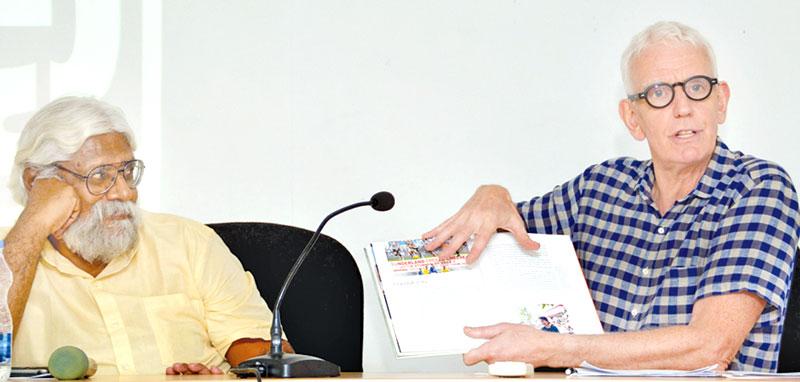
“Change is not a matter of belief. It is as inevitable as evolution. The question is not whether changes will happen or not. Change can happen at any time, anywhere, it is happening now,” states Ai Weiwei the dissident artist from China who stood up for the rights of thousands of the dead, who lost their lives in the earthquake at Sichuan in 2008 where over 80,000 lives were lost.
At a time, the survivors were brutalised into silence by the regime, art was his form of expression, pressurising the regime for the truth. “Only art and creative acts can resolve the repressive power of an authoritarian regime. They are efficient, human, intelligent… When a totalitarian society faces creative protests, it is like ice meeting fire. ”
 That was his foreward to ‘Street Spirit, the Power of Protest and Mischief’ by Steve Crawshaw, Policy and Advocacy Director of Freedom from Torture (UK), an acclaimed former foreign correspondent of The Independent which contains 50 strands of fire, woven together and presented in an easy engaging style. ‘Veediye Jeevagunaya – Virodhaya saha Samachchalaya Sathu Balaya’ the Sinhalese translation of the book was released at the Sri Lanka Press Institute last Tuesday.
That was his foreward to ‘Street Spirit, the Power of Protest and Mischief’ by Steve Crawshaw, Policy and Advocacy Director of Freedom from Torture (UK), an acclaimed former foreign correspondent of The Independent which contains 50 strands of fire, woven together and presented in an easy engaging style. ‘Veediye Jeevagunaya – Virodhaya saha Samachchalaya Sathu Balaya’ the Sinhalese translation of the book was released at the Sri Lanka Press Institute last Tuesday.
Creative impact
We should not underestimate the impact of creativity, courage and non-violence in helping to create a different world, says the author, Crawshaw in the introduction to his book. The stories in this book pay homage to those who have defied conventional wisdom and thus created or paved the way for change he said. Street Spirit is the collection of 50 creative and humorous protests and demonstrations across the world, executed with courage by members of the civil society which had been instrumental in bringing about great change in the countries. The book was translated to the local language by Ranjith Perera, and published by Arts and Ideas.
Speaking at the launch of the Sinhala translation, Crawshaw shared his experience in Poland and Leipzig where mass protests had brought in unbelievable changes in the late 1980s. He appraised the action of Asmaa Mahfouz, the Youth Movement leader, who propelled the masses into action at Tahrir Square, Cairo, Egypt through one simple message in her Facebook account.
She said those ‘realists’ who did not participate in protests and demonstrations are part of the problem. Declaring that they would assemble at Tahrir Square, in her message Mahfaouz told the pessimists that “whoever says it is not worth it because there will only be a handful of people, I want to tell him – you are the reason for this,” he said.
Belief and change
Crawshaw told the Sunday Observer said that he considers himself “extremely lucky to have seen different people in impossible circumstances, defying realists and making change.” Some of the protests have been dramatic, some full of surprise and mischief such as ‘laughtivism’ using laughter as the medium of activism, some stemmed from the courage and the decency of a single person and the purpose of the book was to record them as an inspiration to others. “People never know what could make the change and when the change would happen. Activism goes beyond protest. It is not something that keeps people depressed, the protest itself gives energy,” said Crawshaw giving the example of a perosn who told him how he felt ‘free’ even though he was beaten by the police at the protest.
However, what he learnt over the years is that “change happens when people believe in change. Finding belief is difficult. Often, belief is found in being together with others,” he said. He noted that the civil society was very active during the 52 days of the constitutional crisis in Sri Lanka. “It is a very significant moment. I am honoured and grateful that activists think that this (book) is relevant,” said Crawshaw.
In keeping with the essence and the spirit of Crawshaw’s book, the Sinhala translation enthralls the reader with its effortless style of storytelling. Street Spirit is definitely a book written for ‘a time like this.’
Pix. Saman Mendis
